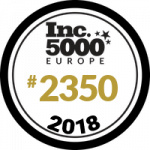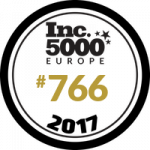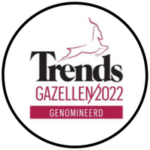Summary In the contemporary business environment, digital procurement is becoming increasingly popular and sought after by businesses around the world. The relationships …
What are the key elements of a successful global procurement strategy?
What is a global procurement strategy?
The global procurement as a service market was valued at approximately USD 6 billion in 2021, with experts predicting a compound annual growth rate (CAGR) surpassing 10% from 2022 to 2028. This market is driven by increasing consumer demand and the presence of small and medium-sized businesses.
To enhance supply chain and procurement practices globally, organisations must embrace a global procurement strategy. This involves sourcing goods and services from various suppliers worldwide and utilising global markets for efficient and cost-effective fulfilment of organisational demands.
Businesses can capitalise on international markets to minimise production and labour expenditures, resulting in considerable expense reductions and heightened profitability. Implementation of a worldwide purchasing plan empowers commitment to a wider spectrum of providers, cultivating ingeniousness and enhancing the calibre and assortment of commodities and services. Utilising worldwide acquisition yields superior pricing, expedited delivery, and superior-quality merchandise, granting a competitive advantage and elevating customer contentment.
By embracing a global procurement strategy, businesses can harness the benefits of rising consumer demand and the proliferation of SMEs, leading to optimised operations, improved competitiveness, and sustained growth in the modern marketplace.
What are the essential components of a successful global procurement strategy?
Organisations seeking to enhance their supply chain, lower expenses, and gain an advantageous position in the global market must prioritise a competitive procurement technique. This entails skillfully coordinating diverse procurement elements to guarantee streamlined, economical, and sturdy procurement procedures.
Key components of a strategy encompass comprehensive supplier oversight, proficient evaluation of potential risks, and formidable cost-cutting tactics. Businesses can capitalise on the advantages of global sourcing by incorporating these components while reducing potential obstacles and disturbances.
Supplier management
Identifying and evaluating suppliers
Identification and evaluation of potential suppliers marks the commencement of proficient supplier management. Paramount factors for choosing steadfast and quality vendors encompass their financial solidity, production prowess, adherence to quality assurance procedures, and compliance with regulatory mandates. A comprehensive assessment guarantees that suppliers fulfil requisite standards and possess the capabilities to uphold consistent delivery.
Building strong supplier relationships
70% of firms report that their strategic plan emphasises supplier relationship management. Tactics for building these connections include continuous streams of communication, transparency, visibility, trust, and collaborative problem-solving and decision-making. These strong supplier relationships lead to increased reliability within the supply chain, enhanced cooperation, quality resource allocation, greater innovation, and stakeholder satisfaction.
Performance monitoring and improvement
Consistently monitoring and improving supplier performance is essential for maintaining high standards within business processes. This involves conducting frequent performance evaluations, establishing clear and measurable key performance indicators (KPIs), and using performance data to identify areas for process improvement. Through continuous issue resolution, constructive feedback, and collaborative efforts, sustained improvement can be achieved.
Risk assessment
Identifying potential risks
75% of executives predict business continuity planning and crisis management will change drastically, data shows. Identifying potential risks in global procurement is vital for mitigating issues before they arise. The types of risks include geopolitical instability, economic fluctuations, and logistical challenges. Tools and techniques for procurement risk identification involve risk assessments, contingency plans, market analysis, and supplier audits.
Risk mitigation strategies
41% of organisations report that they experienced three or more critical risk events in 2024, research showed. Active risk management tactics encompass the formulation of backup plans, diversifying the pool of suppliers to lessen reliance, and implementing all-encompassing procedures for managing potential risks. Consistent evaluations and revisions guarantee that the procurement approach maintains its resilience in the face of possible disruptions.
Supplier risk evaluation
66% of organisations emphasise strategic sourcing and value generation in procurement processes. Assessing individual suppliers’ risk is a crucial step in procurement today, as it involves evaluating their financial stability, compliance history, production scalability, and regional resilience. By continuously monitoring and evaluating supplier risk, organisations can anticipate potential issues and take proactive measures to ensure a stable supply chain.
Cost control
Cost analysis and optimisation
To exercise control over expenditures in the acquisition process, it is crucial to conduct a comprehensive cost analysis and optimisation. This entails scrutinising elements of cost and pinpointing potential opportunities for minimising expenses. To achieve cost reduction, one may employ tactics such as bargaining for more favourable conditions, streamlining purchases, and harnessing the benefits of economies of scale while maintaining high standards.
Budgeting and forecasting
Effective procurement relies heavily on precise budgeting and forecasting. Utilising tools for projecting procurement expenses enables accurate predictions of future costs and facilitates efficient allocation of resources. Budgeting guarantees that procurement operations adhere to established financial objectives and limitations. Firms can identify cost-saving opportunities and make informed decisions that align with their overall strategic goals.
Value engineering
Value engineering aims to enhance product value while minimising expenditures. Methods encompass reconstructing items for cost-effectiveness, employing alternate materials, and coordinating with suppliers for innovative and economical solutions. This approach guarantees quality benchmarks are met at the most optimal price, supporting cost-efficiency and high performance. Firms can adapt to market changes and evolving needs, ensuring competitiveness.
A comprehensive approach to global procurement is essential for businesses to thrive in today’s competitive corporate world. Prioritising supplier oversight, risk evaluation, and expenditure management can enhance operational productivity, reduce costs, and strengthen the supply chain against disruptions.
These strategic initiatives improve the quality and variety of products and services, ensuring long-term sustainability and success in the global market. To foster growth and innovation, it is crucial to actively implement and continuously improve a global procurement strategy.
What are the technologies and tools for effective global procurement?
Procurement software
Procurement software is essential for managing and streamlining procurement processes. These tools provide benefits such as enhanced visibility into the supply chain, streamlined workflows, and improved spend management. With 55% of companies increasing their supply chain investments, adopting advanced procurement software can drive significant efficiencies and cost savings.
Data analytics
Data analytics holds immense significance in contemporary procurement, as it empowers firms to make informed decisions. By scrutinising procurement data, corporations can recognise patterns, predict market needs, and enhance supplier effectiveness. This data-centric approach aids in decision-making, mitigating potential risks, and enhancing the efficiency of processes.
Automation
Automation offers benefits, including reduced manual errors, faster processing times, and increased efficiency. Systems can handle tasks such as order creation, invoice processing, and communication, freeing up resources and allowing teams to focus on strategic activities. Automation enhances accuracy, accelerates procurement cycles, and supports compliance with policies.
Transform your procurement: Unlock efficiency and growth with Kronos Group
Uncover the potential of strategic procurement with Kronos Group. Our procurement consulting services revolutionise procurement procedures and promote operational excellence. We utilise innovative technologies and industry knowledge to streamline supply chains, optimise cost control, and elevate supplier partnerships.
Our experts design personalised tactics that align with your organisational requirements. Kronos Group guides businesses through intricate procurement environments and achieves financial objectives through inventive resolutions.
Whether you aim to amplify productivity, mitigate risks, or secure a competitive advantage, we provide the proficiency and resources to elevate your procurement operations. Collaborating with us allows you to access untapped possibilities and facilitate continuous expansion in the marketplace.

Fighting the effects of inflation with sourcing and procurement consultants
Stay up-to-date on the latest insights on procurement, finance, and project management.
Summary Strategic procurement has become a necessity in today’s business world and organisations try to remain competitive. Having the right procurement strategies …
Summary The world of consulting has been undergoing a massive transformation and management consulting jobs are experiencing the impacts of these changes. …
FAQ
- Supplier management: Identifying and managing reliable suppliers.
- Risk management: Identifying and mitigating risks in the supply chain.
- Cost management: Controlling and optimising procurement costs.
- Technology and innovation: Leveraging advanced technologies and innovative solutions.
- Global sourcing: Procuring from international suppliers for cost and quality benefits.
- Strategic partnerships: Building long-term, collaborative relationships with key suppliers.
- Category management: Managing procurement by specific categories to optimise efficiency and value.
Global procurement involves sourcing goods and services from international suppliers to enhance cost savings, access a diverse range of products, and improve supply chain efficiency on a scale.














